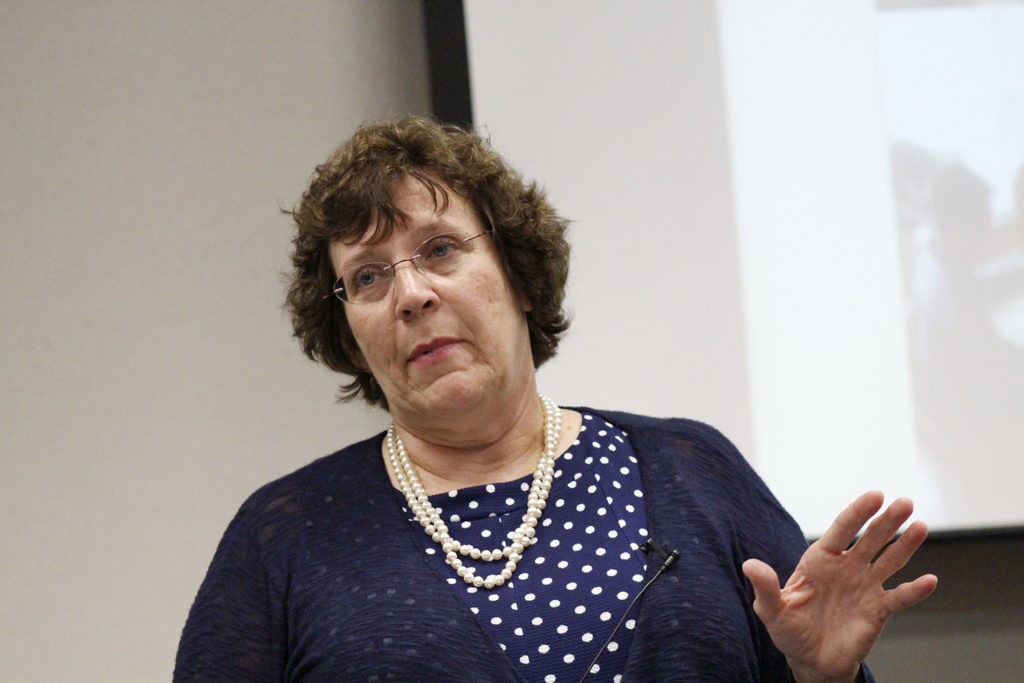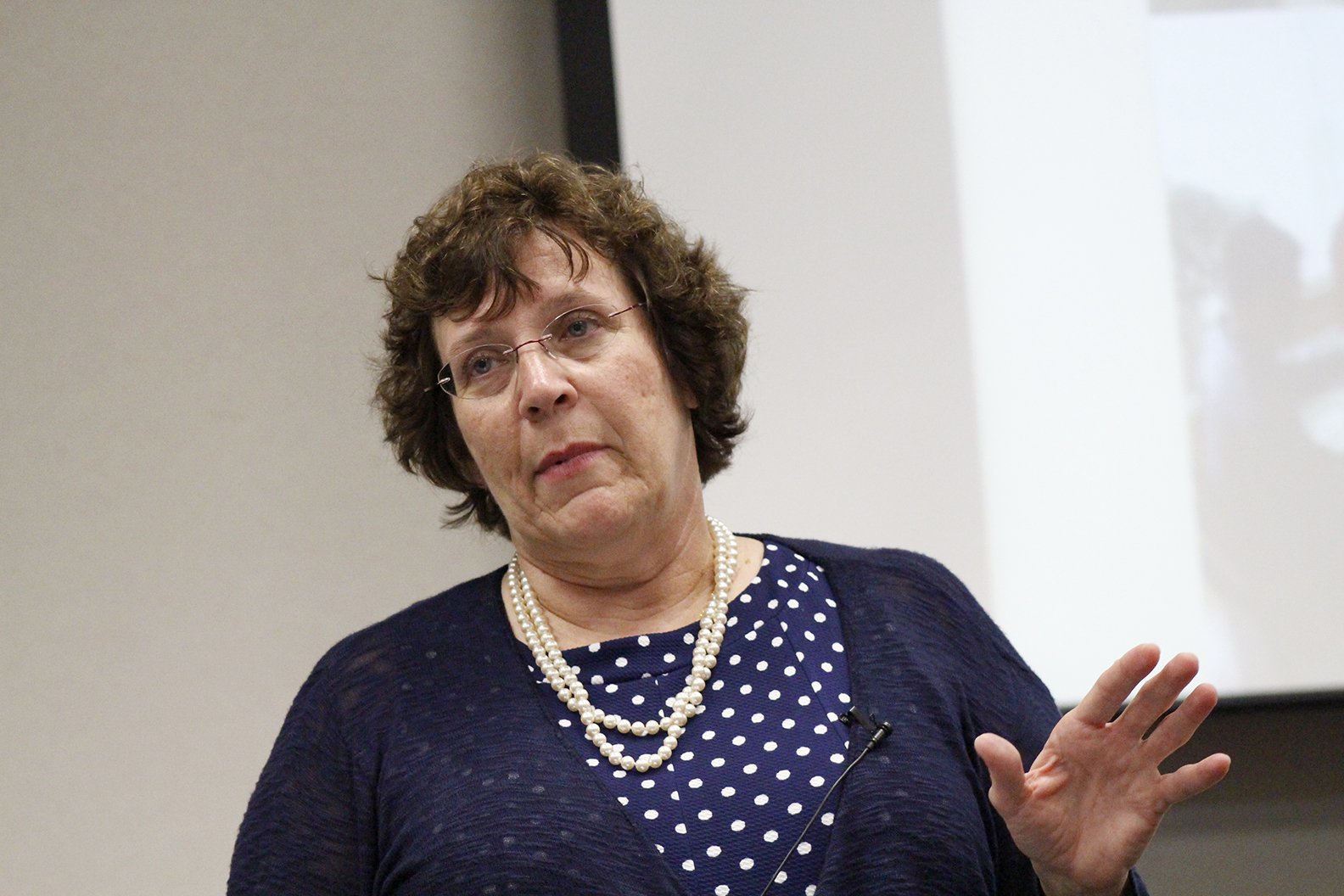
[quote_box_center]EDITOR’S NOTE: This is the second of three articles about talks presented at the Day of Understanding sponsored by the diocesan offices of Family Catechesis and of Marriage and Respect Life Oct. 21. [/quote_box_center]
Rilene Simpson spoke at length about a topic that’s often hushed in Catholic circles: exploring the gay identity.
What’s more, some 120 priests, deacons, women religious and other lay parish leaders packed into a conference room at the Diocesan Pastoral Center Oct. 21 to hear it. Simpson was once in a long-term lesbian partnership as an atheist and has since converted to Catholicism and a life of celibacy, a story she shared in the documentary, “Desire of the Everlasting Hills.” She intertwined her testimony with a series of headline stories pertaining to gender identity.
It was all part of a “Day of Understanding” surrounding the Church’s perspective of love, marriage and homosexuality plus the problems that arise when feelings and human minds supersede. Simpson was the middle of a trio of guest speakers on the issue and the only one to offer a female perspective.
There isn’t any physical evidence to indicate a person’s sexual orientation, Simpson said. It’s based solely on self-identification, which relies on feelings. The problem is, feelings are transient. They change with the circumstances and times, she said.
It’s often brought on when there’s a disorientation or a disconnectedness with someone of a particular gender. Adults are hinting to youth and even children who say they don’t like the opposite gender — when it’s an appropriate age to have such feelings — that they might be gay.
Simpson read portions of a recent email from a parent concerned about a book that a school librarian recommended for a fifth-grader. Its title bore the first name of the 8-year-old character. Problem was, the character “felt” like a girl and was referred to as “she” throughout.
“The emphasis on feelings is at the cost of reality or truth,” Simpson said.
That truth is that a person’s self-worth and self-esteem is entitled by God, she continued. It’s there from the moment of conception.
“The highest form of respect you can afford a person is the Truth, spoken in love and charity,” she said. Simpson found the truth in the Catholic Church.
“The problem with the truth is, it’s very rich, very deep. It’s very full. It takes a lifetime to contemplate it,” she said. “So the truth about human dignity is complex, but it can’t be reduced to a bumper sticker, equal sign or rainbow.”
SEE ALSO: ‘Truth overruled’ author highlights way forward for secular marriage debate
Paul Darrow, whose story was also featured in a documentary about being gay and leaving — then returning to — the Church, agreed. He recently told Catholic News Agency that it’s too easy to downplay the truth of the human body. Things like birth control, abortion and accepting those in personal circles living a gay but not chaste lifestyle are about human desire.
“But the value of life, and the purpose of a man and a woman, the purpose of marriage, the purpose of the Temple of the Holy Spirit being our body, those things aren’t changing,” Darrow said.
That hasn’t stopped people from trying. Simpson briefly brought up Bruce Jenner’s name. She was adamant, that due to different brain structure, anatomy and God-given purpose, he couldn’t possibly know what it feels like to be a woman.
Later that day, headlines speculated that Glamour magazine named him as “Woman of the Year.” The following day, a local television station profiled three “transgender men” who finally found a local clinic to tend to their medical needs.
Simpson told The Catholic Sun that a person’s identity is crucial and that a person’s body has incredible significance.
“We need to guard it against the incursions of our culture,” Simpson said. “In ministries, the greatest way we can honor someone that we love is to tell the truth to them in kindness and charity.”







